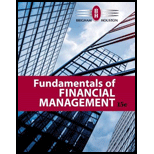
Concept explainers
a)
To determine: The annual
Introduction:
The risk and return are two closely related terms. The risk is the uncertainty attached to an event. In case of any investment, there is some amount of risk attached to it as there can be either gain or loss. While return in the financial term is that percentage which represents the profit in an investment.
Higher risk is associated with higher return and lower risk has a probability of lower return. The investor has to face a tradeoff between risk and return in terms of an investment.
The annual rate of return refers to that return which is charged or is earned on an investment for a year. This rate is expressed in percentage.
b)
To prepare: The standard deviation for the given data.
Introduction:
The standard deviation refers to the stand-alone risk associated with the securities. It measures how much a data is dispersed with its standard value. The Greek letter sigma represents the standard deviation.
c)
To determine: The coefficient of variation.
Introduction:
The coefficient of variation is a tool to determine the investment’s volatility.
d)
To determine: Sharpe ratio
Introduction:
Sharpe ratio helps to determine the performance of the investment.
e)
To prepare: A scatter diagram showing the company’s returns and the index returns.
f)
To determine: The beta of the B Industries and R Inc. by running regressions of their returns.
g)
To determine: The required returns of the two companies by security market line equation.
h)
To determine: The beta and the required return for a newly constructed portfolio.
i)
To determine: The new portfolio’s required return.
Trending nowThis is a popular solution!

Chapter 8 Solutions
Fundamentals of Financial Management (MindTap Course List)
- Bartman Industries' and Reynolds Inc.'s stock prices and dividends, along with the Winslow 5000 Index, are shown here for the period 2015-2020. The Winslow 5000 data are adjusted to include dividends. Calculate the standard deviations of the returns for Bartman, Reynolds, and the Winslow 5000. (Hint: Use the sample standard deviation formula, STDEV function in Excel). Bartman Industries Reynolds Inc. Winslow 5000 Year Stock Price Dividend Holding period return Stock Price Dividend Holding period return Includes Divs. Holding period return 2020 $17.25 $1.15 $48.75 $3.00 11,663.98 2019 14.75 1.06 52.30 2.90 8,785.70 2018 16.50 1.00 48.75 2.75 8,679.98 2017 10.75 0.95 57.25 2.50 6,434.03 2016 11.37 0.90 60.00 2.25 5,602.28 2015 7.62 55.75 4,705.97arrow_forwardAssume these are the stock market and Treasury bill returns for a 5-year period: Year 2016 2017 2018 2019 2020 Stock Market Return (%) 33.30 13.20 -3.50 14.50 23.80 Required: a. What was the risk premium on common stock in each year? b. What was the average risk premium? c. What was the standard deviation of the risk premium? (Ignore that the estimation is from a sample of data.) 3 Required A Required B T-Bill Return Complete this question by entering your answers in the tabs below. Standard deviation (%) 0.12 0.12 0.12 0.07 0.09 x Answer is complete but not entirely correct. Required C What was the standard deviation of the risk premium? (Ignore that the estimation is from a sample of data.) Note: Do not round intermediate calculations. Enter your answer as a percent rounded to 2 decimal places. 13.69 X % घarrow_forwardUsing the data in the table:, a. What was the average annual return of Microsoft stock from 2005-2017? b. What was the annual volatility for Microsoft stock from 2005-2017? a. What was the average annual return of Microsoft stock from 2005-2017? The average annual return is %. (Round to two decimal places.) Data table (Click on the following icon in order to copy its contents into a spreadsheet.) Realized Return for the S&P 500, Microsoft, and Treasury Bills, 2005-2017 S&P 500 Realized Return Microsoft Realized Return Dividends Paid* Year End 2004 2005 2006 2007 2008 2009 2010 2011 2012 2013 2014 2015 2016 2017 S&P 500 Index 1211.92 1248.29 3.00% 4.80% 1418.30 1468.36 903.25 4.70% 1.50% 0.10% 0.10% 1115.10 1257.64 1257.61 0.00% 1426.19 0.10% 1848.36 0.00% 0.00% 2058.90 2043.94 0.00% 0.20% 2238.83 2673.61 0.80% *Total dividends paid by the 500 stocks in the portfolio, based on the number of shares of each stock in the index, adjusted until the end of the year, assuming they were…arrow_forward
- Review the excerpted table of historic returns shown below. The returns have all been annualized after having calculated monthly returns for the previous ten years. In addition, information is provided about the average, the volatility, and the sensitivity of the possible investments. Time Period # Market Return Firm W Firm X Firm Y Firm Z T-Bill 1 0.333 0.191 0.218 0.955 0.601 0.035 2 -0.144 -0.423 -0.632 -0.747 -0.472 0.039 3 0.143 0.348 0.470 0.379 0.378 0.040 4 0.316 0.871 0.868 -0.192 0.502 0.036 5 0.178 0.912 0.499 0.694 0.364 0.036 6 -0.014 0.532 0.168 -0.671 -0.064 0.038 … … … … … … … … … … … … … … 119 0.374 0.556 1.014 0.023 0.698 0.037 120 0.173 0.547 0.092 0.658 0.222 0.036 Average Return 0.082 0.113 0.067 0.167 0.121 0.029 Standard…arrow_forward1.) Given this return data, the average realized return on Happy Dog Soap Inc.’s stock is _______ . 2.) The preceding data series represents a sample of Happy Dog’s historical returns. Based on this conclusion, the standard deviation of Happy Dog’s historical returns is _______ . 3.) If investors expect the average realized return on Happy Dog Soap Inc.’s stock from 2016 to 2020 to continue into the future, its expected coefficient of variation (CV) is expected to equal _______ .arrow_forward(Solving a comprehensive problem) Use the end-of-year stock price data in the popup window,, to answer the following questions for the Harris and Pinwheel companies. a. Compute the annual rates of return for each time period and for both firms. b. Calculate both the arithmetic and the geometric mean rates of return for the entire three-year period using your annual rates of return from part a. (Note: you may assume that neither firm pays any dividends.) c. Compute a three-year rate of return spanning the entire period (i.e., using the ending price for period 1 and ending price for period 4). d. Since the rate of return calculated in part c is a three-year rate of return, convert it to an annual rate of return by using the following equation: 1 + Three-Year Rate of Return 1 + Annual Rate of Return 3 e. How is the annual rate of return calculated in part d related to the geometric rate of return? When you are evaluating the performance of an investment that has been held for several…arrow_forward
- Review the excerpted table of historic returns shown below. The returns have all been annualized after having calculated monthly returns for the previous five years. In addition, information is provided about the average, the volatility, and the sensitivity of the possible investments. Time Period # Market Return Firm W Firm X Firm Y Firm Z T-Bill 1 0.333 0.191 0.218 0.955 0.601 0.035 2 -0.144 -0.423 -0.632 -0.747 -0.472 0.039 3 0.143 0.348 0.470 0.379 0.378 0.040 4 0.316 0.871 0.868 -0.192 0.502 0.036 5 0.178 0.912 0.499 0.694 0.364 0.036 6 -0.014 0.532 0.168 -0.671 -0.064 0.038 … … … … … … … … … … … … … … 59 0.374 0.556 1.014 0.023 0.698 0.037 60 0.173 0.547 0.092 0.658 0.222 0.036 Average Return 0.082 0.113 0.067 0.167 0.121 0.029 Standard…arrow_forwardConsider the following table of annual rates of return, in percentage, for four common risky assets over the time period 2010 to 2019 • Berkshire Hathaway (ticker: BRK/A) • S&P 500 Index (ticker: SPX) • NASDAQ 100 Index (ticker: NDX) • Russell 2000 Index (ticker: RUT) YEAR BRK/A SPX NDX RUT 2010 21.4 15.1 19.22 26.85 2011 -4.7 2.1 2.7 -4.18 2012 16.8 16 16.82 16.35 2013 32.7 32.4 34.99 38.82 2014 27 13.7 17.94 4.89 2015 -12.5 1.4 8.43 -4.41 2016 23.4 12 5.89 21.31 2017 21.9 21.8 31.52 14.65 2018 2.8 -4.4 -1.04 -11.01 2019 11 31.5 37.96 25.52 Now assume there is a risk-free asset available and the annual risk-free rate is 2%. Using mean-variance portfolio theory, determine the 4 portfolio weightings and the portfolio variance for the unique fund F defined by the tangent portfolio and the one-fund theorem. Note that the portfolio weights sum to 1 and short selling (negative weights) are permissible.arrow_forwardYou have found the following historical information for the Daniela Company: Stock price EPS Year 1 $48.09 2.54 Target price Year 2 $ 64.22 2.60 Year 3 $ 62.94 2.77 Year 4 $65.62 2.76 Earnings are expected to grow at 9 percent for the next year. Using the company's historical average PE as a benchmark, what is the target stock price in one year? Note: Do not round intermediate calculations and round your answer to 2 decimal places, e.g., 32.16.arrow_forward
- See Table 2.5 LOADING... showing financial statement data and stock price data for Mydeco Corp. Suppose Mydeco's costs and expenses had been the same fraction of revenues in 2016-2019 as they were in 2015. What would Mydeco's EPS have been each year in this case? Calculate the new EPS for 2016-2019 below: (Round dollar amounts and number of shares to one decimal place. Round percentage amount and the EPS to two decimal places.)arrow_forwardPresented here are summarized data from the balance sheets and income statements of Wiper Inc.: WIPER INC. Condensed Balance Sheets December 31, 2020, 2019, 2018 (in millions) 2020 $ 793 2,428 2019 $1,021 1,935 $2,956 2018 $ 883 1,734 $2,617 Current assets Other assets Total assets $3,221 Current liabilities Long-term liabilities Stockholders' equity $ 592 1,607 1,022 $3,221 $ 845 1,070 1,041 $2,956 $ 742 942 933 Total liabilities and stockholders' equity $2,617 WIPER INC. Selected Income Statement and Other Data For the year Ended December 31, 2020 and 2819 (in millions) 2020 2019 Income statement data: Sales $3,965 311 99 236 $2,928 325 Operating income Interest expense Net income Other data: Average number of common shares outstanding Total dividends paid 231 48.2 S 53.8 Required: a. Calculate return on investment, based on net income and average total assets, for 2020 and 2019. b. Calculate return on ecuity for 2020 and 2019. c. Calculate working capital and the current ratio for…arrow_forwardDirections: Compute the total returns, the average of returns, and the standard deviation of the following stocks: 1) 2) EGRH Inc. MP, Ltd. STOCK RETURN AVERAGE OF YEA AVERAGE OF RETURNS (x) YEAR STOCK RETURN PRICE (x₁) PRICE RETU Jan-2021 Po Feb-2021 P8.6 Jan-2021 PO. Feb-2021 PO.090 Mar-2021 P0.097 Apr-2021 PO.189 May-2021 PO.164 Mar-2021 P9.14 Apr-2021 P13.30 May-2021 P13 Jun-2021 P60 Jul-2021 16.94 Jun-2021 P0.495 Jul-2021 PO.28 Aug-2021 PO Sep-2021 90 Aug-202 P13.70 Sep-2 P14.88 Oct-2021 0.375 Oct 21 P15.30 Nov-20 PO.325 N2021 P14.30 Dec-2 PO.330 ec-2021 P15.52 3) SD (8) GSM Inc. STOCK YEAR PRICE Jan-2021 P57.70 Feb-2021 P52.90 Mar-2021 P50.95 Apr-2021 P58.25 May-2021 P74.05 Jun-2021 P94.75 Jul-2021 P85.00 Aug-2021 P105.00 Sep-2021 P114.00 Oct-2021 | P101.00 Nov-2021 P100.40 Dec-2021 P113.80 SD (8) = RETURN (x₁) -x)² AVERAGE OF RETURNS (x-x)² (x) SD (8) = ACEE, Inc. YEAR STOCK RETURN PRICE (x₁) Jan-2021 P13.56 Feb-2021 P20.80 Mar-2021 P22.50 Apr-2021 P18.90 May-2021 P17.00…arrow_forward
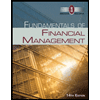 Fundamentals of Financial Management (MindTap Cou...FinanceISBN:9781285867977Author:Eugene F. Brigham, Joel F. HoustonPublisher:Cengage Learning
Fundamentals of Financial Management (MindTap Cou...FinanceISBN:9781285867977Author:Eugene F. Brigham, Joel F. HoustonPublisher:Cengage Learning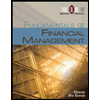 Fundamentals of Financial Management, Concise Edi...FinanceISBN:9781285065137Author:Eugene F. Brigham, Joel F. HoustonPublisher:Cengage Learning
Fundamentals of Financial Management, Concise Edi...FinanceISBN:9781285065137Author:Eugene F. Brigham, Joel F. HoustonPublisher:Cengage Learning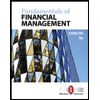 Fundamentals of Financial Management, Concise Edi...FinanceISBN:9781305635937Author:Eugene F. Brigham, Joel F. HoustonPublisher:Cengage Learning
Fundamentals of Financial Management, Concise Edi...FinanceISBN:9781305635937Author:Eugene F. Brigham, Joel F. HoustonPublisher:Cengage Learning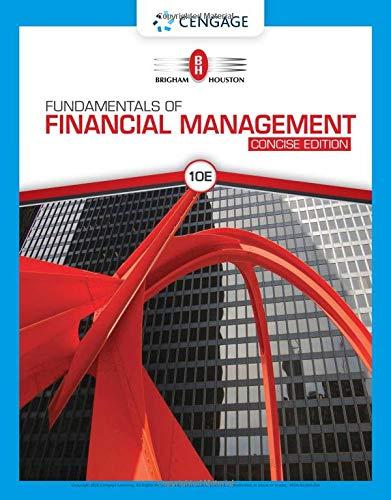 Fundamentals Of Financial Management, Concise Edi...FinanceISBN:9781337902571Author:Eugene F. Brigham, Joel F. HoustonPublisher:Cengage Learning
Fundamentals Of Financial Management, Concise Edi...FinanceISBN:9781337902571Author:Eugene F. Brigham, Joel F. HoustonPublisher:Cengage Learning



